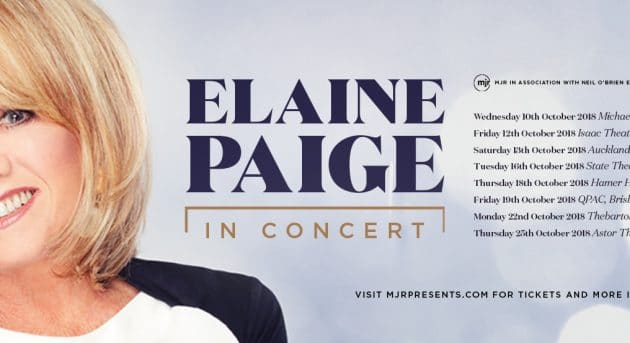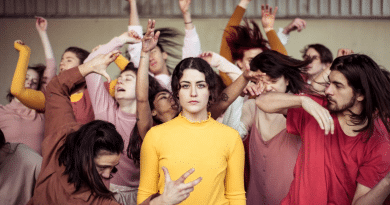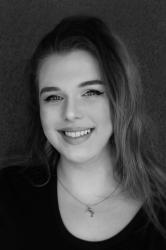A chat with Elaine Paige
Elaine Paige (proper noun) – Multi-talented, legendary, theatrical icon, and coming to a concert hall near you!
Making her first professional stage debut at only age 16, the years that followed would have been an absolute whirlwind. Known for originating the roles of Eva Peron, Grizabella and Florence Vassy, Elaine has well and truly earned her title of ‘the First Lady of Music Theatre.’

Other stage credits vary from the thrillingly graceful Norma Desmond in Sunset Boulevard, the iconic Mrs Lovett of Sweeney Todd, and the charming titular character of The Drowsy Chaperone. She’s tread the boards of some of the world’s most famous theatres both across Broadway and the West End, has featured in television programs, and on her own radio program. Later this year, Elaine is heading to Australia for a concert tour, gracing Sydney, Melbourne, Brisbane, Adelaide and Perth with her presence.
With over 50 years in the industry, her contributions to the world of theatre and performance is truly endless, and it was both an honour and a privilege to be able to speak to her about her incredible, albeit busy, life.
What was it that initially drew you to performing?
Performing was something that I discovered while I was at school. I was at a secondary modern girls school in London, and then came the time where I had to make the decision of whether I would stay on and take my exams and A levels and go to university or not. I never really felt that academically I was cut out for that sort of thing, and my passion at school was always music and vocational studies more than academia. I was very involved with the school choir, I had a fabulous music teacher – I don’t know if she saw a spark in me, but whenever it came to productions, she’d always cast me in a leading role.
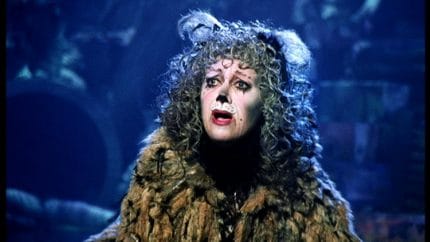
One year in particular, we did a show that was full of Mozart arias. Obviously, my parents would come and see these productions. So of course, that year they came to see. I must have been 14 or 15 years old, and at the end of the show I had to sing an aria. Afterwards, my dad asked me if I would like to go to drama school after I left secondary modern school, to which I said “oh yes!” In a way, although it was something I know I loved to do more than anything else, it took my father to recognise it in me and make the suggestion that I might want to go to drama school and give it a try for me to act on it. That’s how it happened really. I went to drama school for 3 years and the rest is history, as they say!
You have worked in theatre for a large majority of your life. How did you overcome any difficulties or struggles you approached?

I think the most difficult thing about being in the theatre is when you’re starting out. You have to audition for everything that you want to get, the parts you want. The hardest thing was learning to take rejection. Most of the time you go up for something that you would really like to play and don’t get the job. That’s really the hardest part of all, learning to deal with the rejection. But I used to get down to the last two or three in auditions, and then would get the typical “thank you” shouted out from the voice at the back of a dark theatre and I would think “yes, another one I haven’t got.”
It was, and I suppose still could be, quite dispiriting. But my father would remind me that I would always get down to the last few, so I must have something, and to persevere it further. And I hung onto that – perseverance is key. For any young person starting out in the theatre industry, you’ve just got to persevere and hope that, eventually, the right job will come along for you to be able to prove yourself. That’s what happened with me in Evita – I was on the brink of thinking that I should give it all up. I had been working in and out of shows in the chorus and small parts for about 15 years before I got Eva [Peron]. I certainly feel as if I had paid my dues when that came along!
Of the many you have played, which role did you find particularly challenging, and how did you prepare for it?
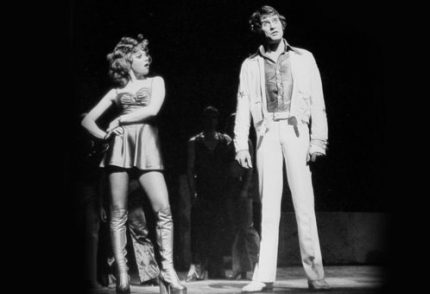
I think everything I’ve ever played has been challenging – nothing’s easy! Certainly Evita was challenging but I was ready. By the time that came along, I was nearly 30 years old and I was ready to prove myself. The challenge then, of course, was being able to do it night after night, eight shows a week. It was a difficult role with a huge score, it took you from one end of your vocal range to the other. So that in itself was a challenge, to be able to replicate that night after night. And there is this extra pressure as a performer when your name is up there because people are buying tickets to see you do the role, so the challenge is to stay healthy. I found I had to lead the life of a nun to make sure I stayed well, because if I went out for dinner after a show, the likelihood is that you’ll bump into someone with a cold, and then you’ll get the cold and then you’re sick and you’re off. And then there’ll be letters from the public saying that they’d bought tickets to see you, and that’s no good. You basically have to devote your whole being toward to make sure you are well and healthy, and able to give the performance of your life every night of the week. I think the important thing you have to learn when you are going for a particular role is that you have to have as much information about the character as possible. Without knowing and going in blindly for an audition, singing a few songs and hoping you get it is no good. You have to have some knowledge and do research. That’s the thing I learned in the end, you have to be prepared.
Who has influenced you throughout your career?

Oh my goodness… so many! When I was young I used to admire Barbara Streisand. I loved the way she could negotiate her chest voice and head voice without hearing the break in the middle – they can sound very different if you are not clever enough to disguise that break. She inspired me to work at that in myself. When I was younger that was not something that I could do with ease, you could hear the difference. Lena Horne was an artist I very much admired for her acting skills, as well as her wonderful communication and storytelling when she sang a song. She was a master craftsman at being able to sing a song with a feeling and intelligence.
Do you have any secret skills or hidden talents that people may not know about?
What a funny question! I don’t know really, i’m quite a good cook, I think that might be a secret? Very few people have tasted my cooking, but the few that have are always very complimentary and always ask for seconds and I think that’s an indicator of being a good cook. I love to play tennis as well, but that’s no secret – I’m not very good at it! But It makes me happy, I love it, it’s the best thing in the world. I shall be bringing my racket when I come visit Australia!
I know this is a tough question, but of all the roles you have played in the past, which has been your favourite?
It is a tough selection, yes! I think I’ve had the privilege of falling from one fabulous role to another. Cats had a great song to sing, but was quite a lonely life as every time I went on stage, everybody went off. Piaf was wonderful because it was really a play with music that turned into a musical. I would say Evita will always remain the one at the top of the list because it was the first one, and it changed my life overnight. The other role that I loved most of all would be Norma Desmond (of Sunset Boulevard). It was a fully rounded character, out was a great acting role.
What advice would you give your younger self?

I would say the same as what my father told me – perseverance in all things is something to remember, to never give up. Don’t ever give in. You need to enjoy the journey! It’s bit like being on the tennis court really, you have to go for every single ball!
Elaine will be touring to Sydney, Melbourne, Brisbane, Adelaide and Perth in October 2018. Tickets are on sale now at Mjrpresents.com/elaine-paige

